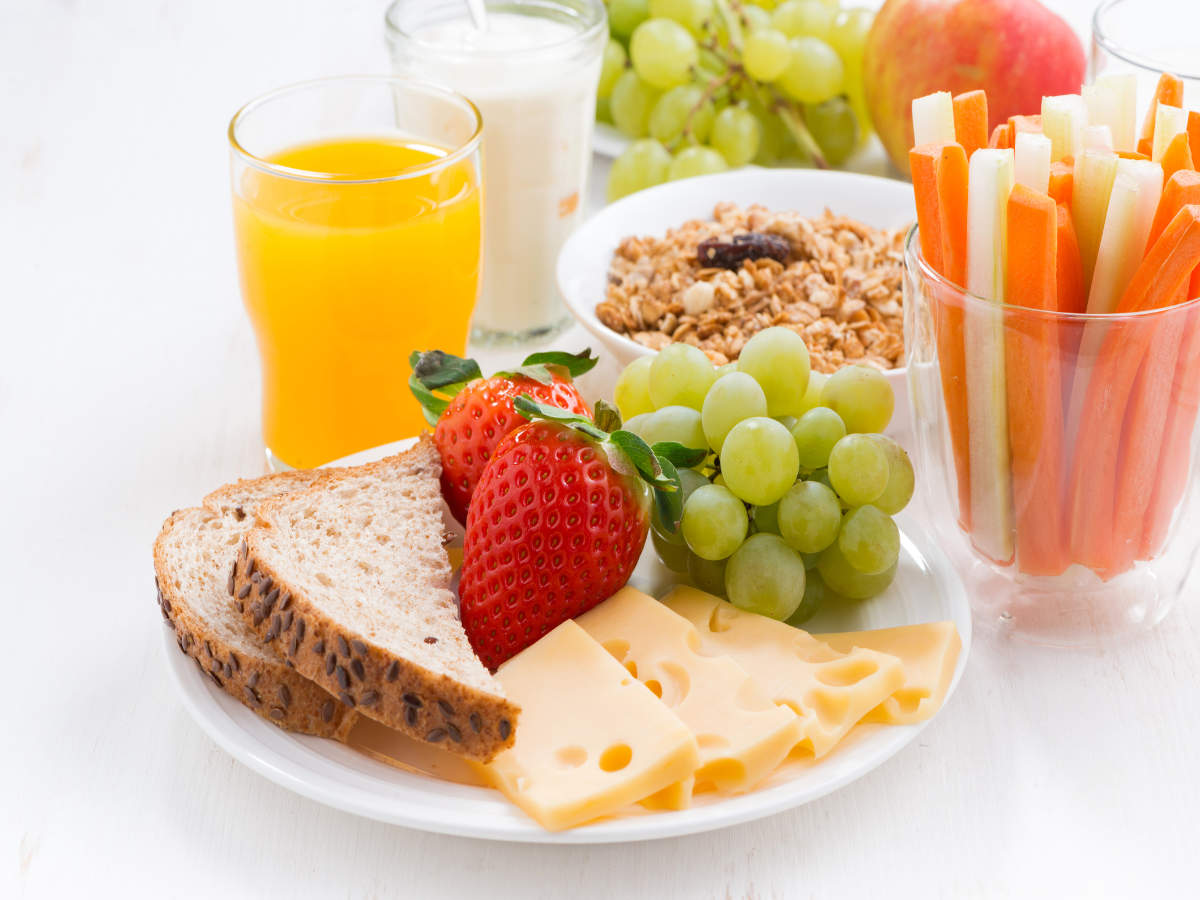Nov 7, 2019
No more junk food in Kerala schools
KOCHI: In a major initiative to promote healthy food habits among children at school, Food Safety and Standards Authority of India (FSSAI) – an autonomous body established under the central ministry of health & family welfare – has come up a new directive to ban the sale of junk foods in and around schools as part of its ‘Eat Right’ campaign.
In the draft regulation –titled Food Safety and Standards (Safe Food and healthy diets for School Children) Regulations 2019 – FSSAI proposed a 10-point charter to clamp down on unhealthy eating habits of students. The charter said foods which are referred to as foods high in fat, salt and sugar (HFSS) cannot be sold to school children in canteens, mess, hostel or shops within a 50m radius.

FSSAI also directed state food authorities/departments of school education to frame healthy diet for students in accordance with the points mentioned in the notification
FSSAI said the availability of HFSS foods like french fries, fried chips, samosa, chola bhatura, gulab jamun, sugar sweetened carbonated or non-carbonated beverages, ready-to-eat food, noodles, pizzas, burgers, confectionery items, sugar and sugar-based products should be discouraged.
FSSAI also directed state food authorities/departments of school education to frame healthy diet for students in accordance with the points mentioned in the notification. It asked the state-level advisory committee to form a subcommittee to monitor the implementation of regulations and ensure inspections.
But, a senior official said the food safety department has not received an official communication from FSSAI. “Once we get a formal directive, we will be bound to implement the same. Schools too will have to take steps to follow regulations. The state, being one of the first to implement restrictions on tobacco near school campus, will take proactive steps in this regard,” he said. Food safety commissioner Rathan Kelkar, who is away on training, was unavailable for comments.
The charter also stated the advertising of HFSS food products in school premises or within a 50m radius will not be permitted. “Food business operators (FBO) should not market, sell, or give low-nutrition foods anywhere on school campus,” it said.
It added that schools will no longer get sponsorship for events from FBOs so that they can’t use their logos on banners at field meets or issue wallpapers for school computers/canteens.
Schools or agencies selling or catering school meals under the midday meal scheme must obtain a registration or licence as specified under schedule 4 of the Food Safety and Standards (Licensing and Registration of Food Businesses) regulations, 2011. Nutritionists, dieticians may be engaged, periodically, by schools to assist preparation of menu for children.
FSSAI has also invited suggestions and objections from stakeholders within 30 days from the publication of the draft regulations, based on which it would be finalized for implementation.
No more junk food near schools, says Karnataka govt
BENGALURU: While the Union Government is considering a ban on the sale of junk food in and around schools, the Karnataka Government has already got into the act. The Department of Public Instruction, in association with the Police Department, no less is planning to crack down on junk food joints near schools. So, if a small vendor tries to sell French fries or burger to students outside school, the cops very will chase him out of sight. And more trouble may follow!
The Food Safety and Standards Authority of India (FSSAI) released the ‘Food Safety and Standards (Safe Food and healthy diets for School Children) Regulations, 2019’ in New Delhi on Tuesday. The draft regulations emphasises that food with high fat, salt and sugar (HFSS) content cannot be given to children in school canteens or sold within 50 metres of school campuses.
Primary and Secondary Education Minister Suresh Kumar said, this should have been done long ago. “We will take the help of the police to ensure that junk food is not sold near schools. Children tend to buy such food stuff. This has to stop,’’ he asserted.
He also said they are planning to issue a circular to school managements which will insist that parents do not send junk food in children’s lunch boxes. Whether the cops will check tiffin boxes, is not clear though.
Vasudeva Sharma of Child Rights Trust said, “We welcome the decision to ban the sale of junk food. But one has to clearly describe what constitutes junk food. The authorities concerned should create awareness among parents and children and also the vendors,’’ he said.
Pointing out that there is ban of the sale of tobacco products near schools, Sharma also questioned how effectively it has been implemented.
Nutrition consultant Shalini Manglani said there is no concept of ‘junk food’. “It is either junk or food, there is no in between. If it is not available near schools, children will not consume it. The less they see of it, the less they eat. Children are tempted to eat and once they start eating, it is difficult to stop. Instead of buying junk food, one can buy fruits. The policy is a welcome one,” she added.
Why children should not be served junk food in school
01/7No junk food zone

If junk food is one of the leading causes of so many health problems, why is it being promoted in schools? Most school canteens across the country offer a number of foods that most health experts will deem unhealthy. These foods provide no real nutrition, and might even get in the way of a child’s nutritional requirements. With a steep ascent in health awareness all around the country, many people feel that junk food should not be sold in and around school premises, and here are some details that surround the idea.
02/7The FSSAI intervention

The Food Safety and Standards Authority of India proposed a ban on the sale and advertisement of junk food in school canteens and anywhere within 50 metres of school premises. The objective is to provide children with wholesome and safe food, while keeping them away from HFFS (high in fat, salt and sugar) foods. This even includes banning advertisements that promote such foods. There are many reasons why this ban should be implemented.
03/7Food provided should be wholesome and nutritious

Most junk food contains little to no nutrition, and substituting a healthy meal for something like a burger or a packet of chips rids the child of much needed nutrition. Children are growing at all times, and growth is supplemented by good nutrition, therefore focussing on nutritious food is top priority. Moreover, junk foods are not wholesome, and children are highly capable of feeling hungry shortly, encouraging binge eating.
04/7Food provided should be safe

Junk food contains a lot of unhealthy ingredients like trans fats, hydrogenated oils, artificial sugar, and a whole lot of empty calories. All these are unsafe not just for children, but for people of all ages, and consuming them can cause some serious health problems like damage to the organs and chronic conditions like diabetes or obesity.
05/7There is a lot of false advertising

A lot of products are falsely advertised as being healthy and nutritious, when in fact they are nowhere close to living up to those claims. Products like fruit juice or soya chips are advertised as being healthy, when in fact they are loaded with unhealthy ingredients like sugar, salt, fats, and preservatives, bringing the concept of ethics in the equation.
06/7Children are gullible

False advertising brings us to the next point, which is that children are usually gullible, and are quick to believe any information that is presented to them. Children are tempted by smell and appearance, which are enhanced for that very reason, and are persuaded by false advertising. This way, children end up indulging in food devoid of nutrition and end up compromising on vitamins and minerals.
07/7Engagement of nutritionists and dietitians

Food safety and standards can be maintained if the preparation of food in terms of wholesomeness, nutrition, and safety is assisted by nutritionists and dietitians periodically. This would help in ensuring that children end up getting nutritious food which is of utmost important at that stage.
FDA organizes workshop for Anganwadi workers
JAMMU, Nov 6: Food Safety wing of Food & Drugs Administration (FDA), Jammu in collaboration with Middle Level Training Centre (MLTC) Jammu conducted one day workshop for Anganwadi workers on storage of food articles and norms to be adopted as per FSS Act 2006.
The workshop was organized by Neha Gupta, Principal, MLTC Jammu with the objective to provide awareness among the Anganwadi workers on storage of food materials meant for children and adolescent girls at Anganwadi Centres.
Dr Parvesh Kumar, Assistant Commissioner, Food Safety Jammu, was the resource person for the workshop. Speaking on the occasion, Dr Parvesh educated Anganwadi about norms of Food Safety & Standards Act 2006 and asked them to strictly adhere to these norms while storing food articles.
He emphasized on maintaining proper hygiene and sanitation in order to prevent spoilage of food materials from insects and rodents. He asked them to utilize pest control services in stores of Anganwadi centres from registered pest control agency and ensure that the floors and walls of the store rooms are tiled.
Dr Parvesh also told them that the wooden/steel pallets should be placed below the stored food items which should be stored in a manner that it should be one feet away from the walls of the room. “Proper exhaust system should be installed and doors of the store rooms be fitted with automatic door closers. Stored stock should be distributed to the Anganwadi centres and beneficiaries on basis of FIFO (First In and First Out) system,” he said and advised them to also check the proper label declaration on each packed food.
The workshop was attended by Anganwadi workers, who are also under going job orientation course at MLTC, besides instructors, Food Safety Officers of Municipal Limit Jammu and NYK participants.
Subscribe to:
Comments (Atom)





